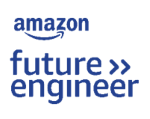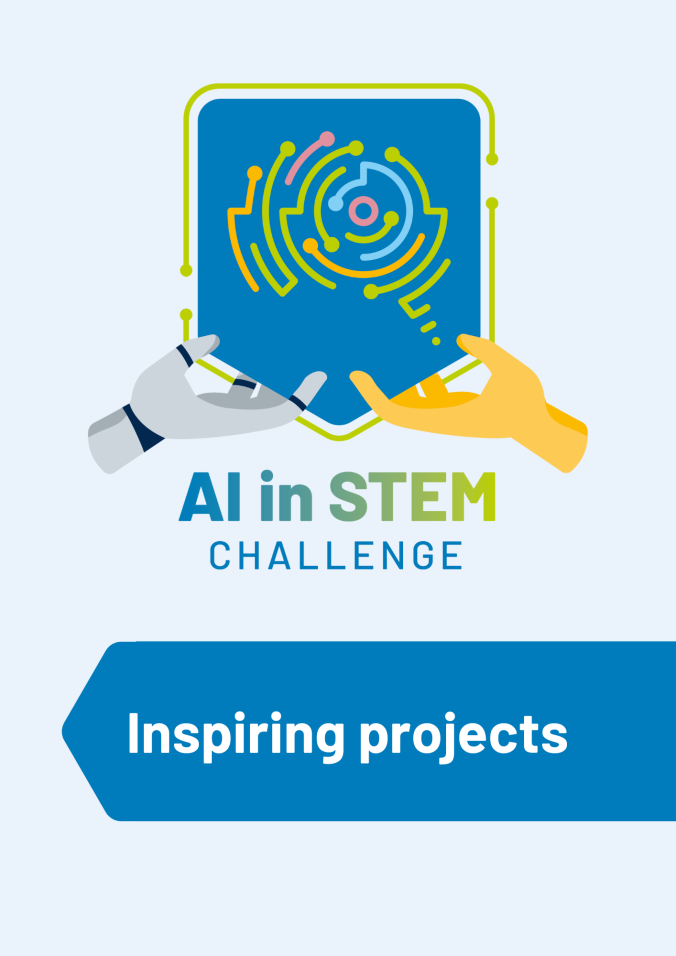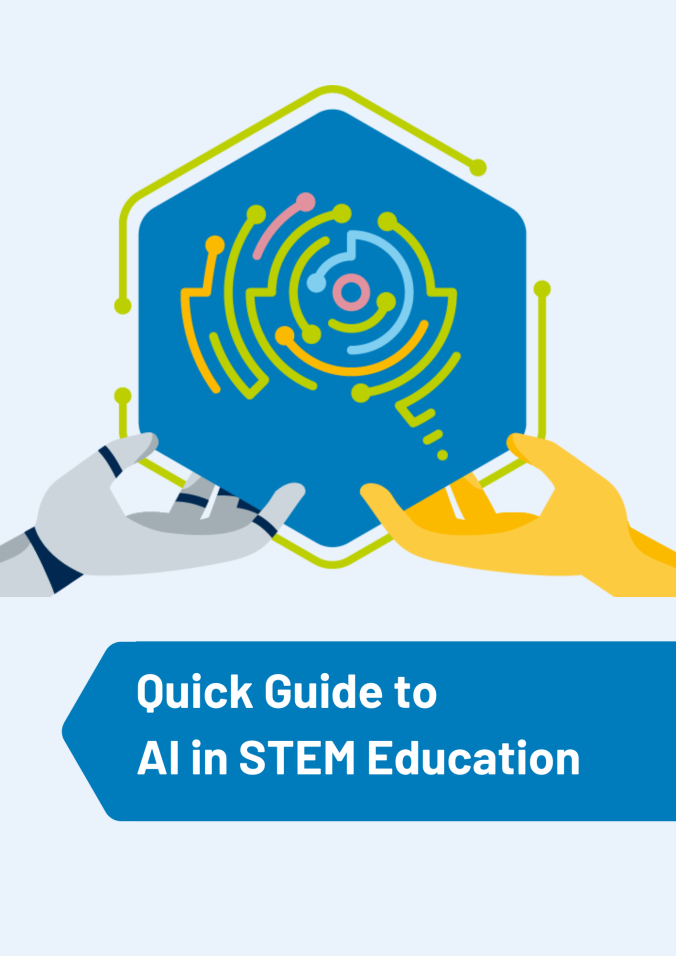EcoKids Teach AI

Overview
Overview
Keywords: AI, machine learning, coding, recycling, sustainability, primary school, robots, VR
Subjects: Primary school curriculum, coding, robotics
Other disciplines: Science, technology, mathematics, language, social studies, and art
Age group: 6–10
Required knowledge/skills: Basic programming skills with visual block-based programming for children and young people (Scratch, PictoBlox...)
Time frame: 10 project days
Cooperation partners: Companies related to recycling and municipalities
Required materials/hardware/software:
- Computers/tablets
- Books/internet for research
- Codable tangible objects (robots with code cards)
- Recyclable materials
Online tools:
- VR space "Frame"
- Teachable Machine (Google or GenAI)
- Block-based programming platforms: Playground raise (edu) , Scratch (edu), PictoBlox
- Online quiz creation tools: Wordwall, Quizizz, Kahoot
Author: Cláudia Meirinhos (Portugal)

![]()
![]()
Introduction to the project
Our world is facing environmental challenges, and it's crucial to equip the next generation with the knowledge and skills to contribute positively. This project integrates subjects like science, technology, mathematics, language, social studies, and art, providing specialised knowledge in recycling and AI fundamentals. Students actively engage in PBL through research, presentations, and interactive games, gaining insights into waste separation and recycling, programming a robot and training AI with block-based programming. Overall, the project imparts foundational skills in technology and problem-solving and fosters a deeper understanding of environmental responsibility, preparing students for a sustainable future.
To start off, the students will “dress up” as superheroes, appealing to fantasy. They will be EcoKids, and their teacher will give them a big and meaningful mission:
- Hello EcoKids, are you ready for an incredible adventure? Your mission is to learn how to sort rubbish and train AI, and to do it too. Together, we'll save the planet and make our world cleaner and happier. Who's ready for some eco-friendly fun?
With this in mind, the project unfolds as follows:
Task 1 – The secret mission
Using recyclable materials such as empty milk or juice boxes, the students make their own superhero masks. After they have put them on, the group/class receives a secret box from the teacher. The box contains the EcoKids’ mission: to train AI for the good of humanity.

Task 2 – A virtual learning space
A VR environment/metaverse will be created (visit EcoKids VR space via Frame to view an example). In this space, the teacher uploads songs and interactive games about recycling for students to test their knowledge of waste separation. There are also videos about AI and visual programming. Here, students upload their photos dressed as EcoKids and showcase all the activities promoted during the project. It's like a world of EcoKids that they can explore even while at home with their families.
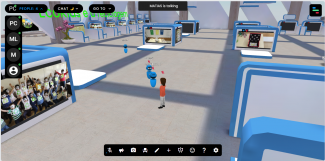
Task 3 – Research on waste separation and recycling
In groups, the students will research using books, magazines, newspapers, interviews with their parents and experts and on the internet what recycling is and how to separate rubbish correctly in recycling bins.

Task 4 – Presentations and games
The students will give presentations on this subject and participate in “sorting garbage games” in the classroom. In these games, students can use recyclable materials from the classroom or even bring them from home. An example of a group game they can play is to scatter the materials on the floor and each group will separate them according to the colours of the recycling bins (use posters). The group that takes the least time wins. Those who wish, can also build recycling bins using large cardboard boxes. Videos, songs and interactive games can be made available in the VR room for the students to improve and test their knowledge.
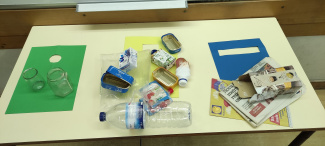
Task 5 – Programming a robot
After testing their knowledge, the students move on to the phase of teaching what they have learnt to others. Firstly, they will program an educational robot on a board with images or boards of recycling bins and cards of recyclable materials. The robot will be programmed with directional buttons on a board divided into squares. To create the game card set, students will cut out images of recyclable objects from magazines and glue them onto cardboard rectangles. The students will then randomly pick a card and have to program the robot to take the trash to the correct recycling bin. For example: Move two squares to the right and three squares down.

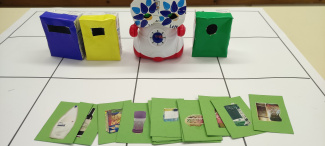

Task 6 – Training the AI
In the next phase, the students train the AI to distinguish what should be put in the different recycling bins, using block-based programming and Teachable Machine. At this stage, younger children will be guided step by step on how to use block-based programming and machine learning. They will train the AI with 3 classes (glass, paper, packaging). To train the “glass” category, students can use a glass bottle or cup; for the “packaging” category, they can use a milk or juice carton; and to train the “paper” category, they can use a newspaper or magazine. These materials can be collected in the classroom or brought from home by the students.
A preview of a machine learning model created with Teachable Machine can be found here.
Note: With the download version of the PictoBlox software, which is based on Scratch 3, you can use the Machine Learning extension to train a machine learning model directly in the programming environment and use the model immediately after export with the blocks of the Machine Learning extension. A tutorial for a simple program for classifying dogs and cats in PictoBlox can be found in our teaching material STEM Resources 4.0.
We have also created a small coding project based on the same principle and process, classifying Christmas vs. summer pictures. You can watch the tutorial with step-by-step guidance in this YouTube video.
Task 7 – Testing the AI
After creating the block-based code (see example below), the students will test whether the AI was trained correctly, with the proper algorithm. They will show different objects to the computer camera. Each time the computer camera recognises the object, the actor of the block-based program will state which of the recycling bins it should be placed in. So, for example, when the students show newspaper, the program actor says “put it in the paper bin”.

Additional activities, cooperations and resources
A study visit to a waste separation and treatment facility is an excellent idea to enhance the EcoKids project and provide students with a first-hand understanding of waste management practices. Taking the students to a company specialising in transforming plastic into other materials or clothing, for example, can provide them with hands-on experience related to the themes covered in the project. This practical experience will be crucial in expanding the theoretical understanding they are acquiring through the EcoKids project.
In Portugal, EcoKids reached out to the mayor’s office to share insights from their project. In their letter, the students highlighted the importance of responsible waste disposal and environmental awareness, and they suggested the installation of recycling bins in close proximity to the school, emphasizing the positive impact it could have on fostering sustainable practices within the community.
Additionally, the group went on a field trip to two recycling companies. The students were able to witness the entire process of plastic transformation, from the bales arriving from selective waste collection companies to a new final product. In these two companies, plastic goes through sorting and crushing machines, and then through machines with moulds where a new object made of recycled plastic is produced. It was a very interesting field trip that enriched the EcoKids project.

Photo by Cláudia Meirinhos
This virtual field trip to a Portuguese recycling facility is also available in English.
Engaging in this superhero-themed project provides students with a unique opportunity to explore careers related to AI and environmental sustainability.
Here are some links about this theme:
- IA for Oceans (via Code.org)
- Girls Who Code
- Empowering Students Through AI Explorations (via YouTube)
- Machine Learning for Everybody – Full Course (via YouTube)
- Teach AI - Prepare Our Students For The Future:
{"preview_thumbnail":"/sites/default/files/styles/video_embed_wysiwyg_preview/public/video_thumbnails/ympzqGzfl0U.jpg?itok=oDiwKgP3","video_url":"https://www.youtube.com/watch?v=ympzqGzfl0U","settings":{"responsive":1,"width":"854","height":"480","autoplay":0},"settings_summary":["Embedded Video (Responsive)."]}
More resources for career orientation with regards to artificial intelligence can be found on our career orientation page.
Conclusion
The EcoKids project presents an exciting fusion of environmental education and the world of artificial intelligence. By adopting a superhero narrative, students embark on a mission to save the planet, actively engaging in recycling practices while simultaneously exploring the fundamentals of AI. Through hands-on experiences and training an AI model, they gain practical insights into AI, marrying ecological awareness with technological know-how.
This innovative approach not only instils a sense of responsibility for the environment but also equips students with the rudiments of AI, shaping them into well-rounded contributors to a sustainable and technologically advanced future.
Task 2 - An immersive virtual learning space
Task 6 – Training the AI
https://teachablemachine.withgoogle.com/
https://tm.gen-ai.fi/image/general (GDPR compliant)
Block-based programming platforms:
Online quiz creation tools:
Virtual field trip and career orientation
Virtual field trip to a Portuguese recycling facility
Empowering Students Through AI Explorations (via YouTube)
Machine Learning for Everybody – Full Course (via YouTube)
Teach AI - Prepare Our Students For The Future (via YouTube)
Further reading and viewing
Educational short videos (via Code.org)
Artificial intelligence isn't magic… It's just code! (via Code.org)
Share this page

